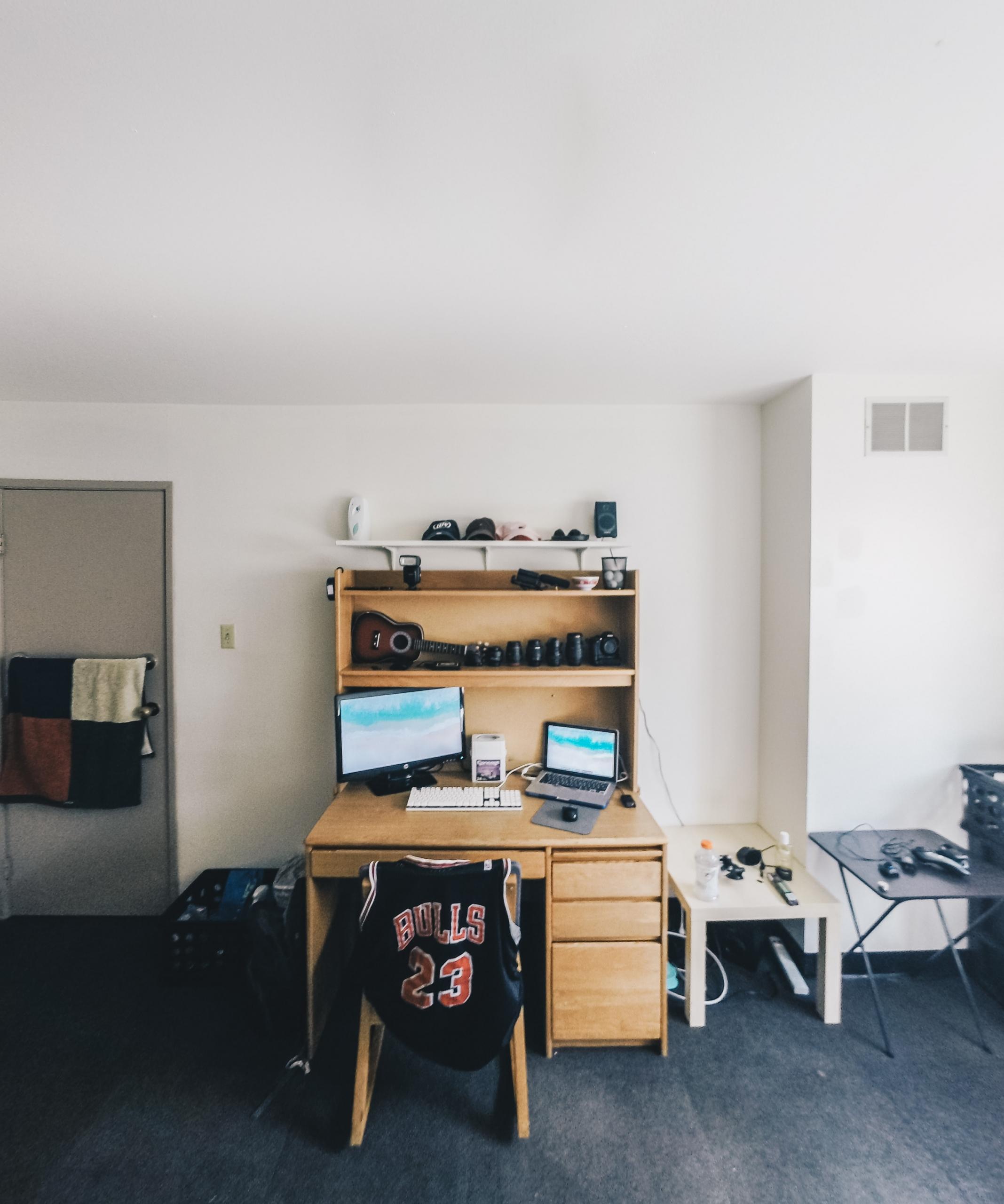"Spectacular achievement is always preceded by unspectacular preparation." -Robert H. Schuller
Would you travel to the Amazon Rainforest without mosquito repellent? Would you embark on a lengthy road trip without using petrol? Would you board a plane without having packed a suitcase? Most likely not. Why's that? To fully enjoy an experience to the best of our abilities, preparation is needed.
Preparing ahead of time provides us with peace of mind and a sense of safety knowing that we will be equipped for whatever life throws at us.
Though it is not always fun to prepare things, and some of us would prefer to make spontaneous decisions on a whim, it is essential to state that a successful life results from good preparation. Much practice is required for significant life events such as attending university, getting married, welcoming a child, buying a home, and retiring to be successful.
Therefore, without further delay, in today's article, we shall focus our attention on how individuals of all ages can be prepared by knowing what they must consider when choosing a university in the UK.

How Far Is the University From My Home?
In the last two years of secondary school, when your test results start to count and academic advisors provide guidance about the various options for further education programmes, a pupil needs to start thinking about which university they would like to attend.
Since there are hundreds of higher education centres in the UK, it is best to narrow down the search to only a few options in the last year of high school since that will help you answer the question, how far is the university from my residence?
Why is the question above important? Well, knowing the location and the overall distance of the uni campus from your house helps you adequately plan things the following things:
- Knowing if you need a car,
- Determining the means of public transport,
- If you should commute from your parents or find a place on campus.
While the quality of programmes offered and admission will determine whether or not you will attend a particular university, it is wise to analyze the location and if it will be convenient for you.
It's essential to remember that travelling long distances every day to get to classes is not sustainable. Why? With so many exams, lectures, coursework, etc., driving yourself or taking public transport daily will waste valuable time you should have dedicated to studying. Also, those who take on much more than they can chew in their first are most likely to burn themselves out.
Remember, location is everything and will set you off on the right path to academic victory.
What are the Potential Options for Accommodation?

Finally, if you decide that seeking accommodation on-site is the best choice for your specific situation, have you considered your options? With most students having limited resources and wanting to save as much money as possible to avoid using precious study time for work, the best course of action for housing is often dorms or shared apartments.
On-site dormitories and off-campus housing are fantastic options that will significantly depend on whether they are available at the university and your personal preferences.
The following list highlights the pros and cons of accommodating yourself in uni dorms:
- Pros: there are no worries about finding an apartment since you will always be guaranteed to find a dorm to share on campus. Also, living on campus is the best way to ensure you aren't late for any classes since its location is convenient. And last but not least, living on-site in a dormitory is a fantastic opportunity to get the whole college experience.
- Cons: because of their convenience, dorms at UK universities are usually quite expensive for what you get in comparison to off-campus apartments. When there are parties or rowdy residents in the dorms, it is almost impossible to concentrate on studying. Also, if you live in a dorm room, it's close quarters, and you often have to share bathroom facilities with others.
What about the benefits and drawbacks of renting an apartment near the university campus? Read this list to determine the pros and cons:
- Advantages: when you split the costs with a flatmate, having an off-site apartment is much more affordable than a dorm room. Also, having your place gives you much more privacy than living with many blokes in a small space. And, having your home, you can have all the socializing events you want and be known as the party pad!
- Disadvantages: leasing an apartment is a significant responsibility, and since the university does not manage it, students are in charge of their expenses, such as electricity, water, gas, internet, etc. Sometimes the prices of utilities might cost more than expected, and a dorm could become more affordable. Also, it is essential to consider that finding a landlord wanting to rent a flat to immature uni students could be challenging.
All in all, it is brilliant to consider your options for accommodation before selecting a university. Another important aspect is knowing the city in which the further education centre is located; that sometimes seals the deal and brings us to our following subheading!

What's the City/Town Like Where Uni is Located?

While the majority of significant UK-based universities are situated in well-known cities, there is a large number of further education centres that have their campuses in smaller towns and cities. Therefore, students can decide whether to enjoy the university experience in a populous town or the countryside.
However, since lesser-known cities and towns might not be familiar to all students, we highly recommend taking a road trip from your residence to explore what your future university town has to offer.
In many countries, especially the US, visiting different universities before making a choice is extremely popular. Before enrollment and application deadlines, college road trips are a brilliant opportunity to get a feel for the campus and its surroundings. We remarkably suggest that students analyze the following things when visiting a university town:
- The campus,
- The library,
- Off-site study locations such as coffee shops,
- The food options available,
- Apartments and rooms for rent near uni,
- Recreation centres for activities when you need a break from studying,
- Outdoor hiking paths, cycling lanes, and neighbouring parks.
To find the perfect university town in the UK more accessible, we think having a checklist with your "must-haves" is a beautiful plan. Also, don't get swept away by the first option you visit, tour multiple universities before deciding and weigh the pros and the cons.
Which Undergraduate Courses are Available?
In the last two years of secondary school, while taking GSCE or A-Level exams and through the assistance of guidance counsellors, a student becomes more aware of their interests and which academic degree they would like to study at uni.
So, when you have decided upon a field of study that you wish to acquire, you must find a university that offers courses in that sector since it would be a waste of time to continue to fantasize about your dream school after knowing there are lessons offered in what you want to learn.
Also, it's important to state that some units are best known for an academic discipline. For instance, the London School of Economics and Political Science is for individuals who want to study business, finance, and politics.
Selecting three to five further education centres with great reviews from past students in undergraduate courses that discuss your desired field of expertise is a great way to narrow down the list and ask specific questions about the programmes before sending out applications.
Asking past graduates, professors, and fellow students about what they think of the courses offered at the university helps you make an educated decision.
How Much Money Do I Need for Tuition, Expenses, and Books?

Before even attending university, having a ballpark figure of the amount you will need to save for everything is wise. It is highly recommended to ask yourself the following questions to prepare:
- How much is tuition per semester?
- How much should I allocate for books and course expenses?
- How much money will my accommodations cost per month?
- How much cash should I put aside for groceries and food each week?
- What about utilities, internet, and mobile phone costs?
- Are there any transportation costs?
By asking yourself all of the previously mentioned questions and finding the answers, you are preparing for success and won't be affected by last-minute surprises. Asking persons who have already been through university is a great idea to plan a budget and get their expert advice.
Nonetheless, according to recent statistics, it is helpful to know that English universities can charge up to £9,250 per year for an undergraduate programme. Also, after the end of a three-year Bachelor's degree, approximately £14,700 is a reasonable estimate to have paid in rent money. The price of books dramatically depends on which type of degree you are studying; it could be £50-250 per year.
Also, it is essential to state that if you have plans to attend the most prestigious universities in and around the UK, overall costs are more expensive.
In conclusion, we sincerely hope that today's article has given our readers a more realistic idea of what must be prepared for before attending uni. Let the preparation begin!
Summarise with AI:















